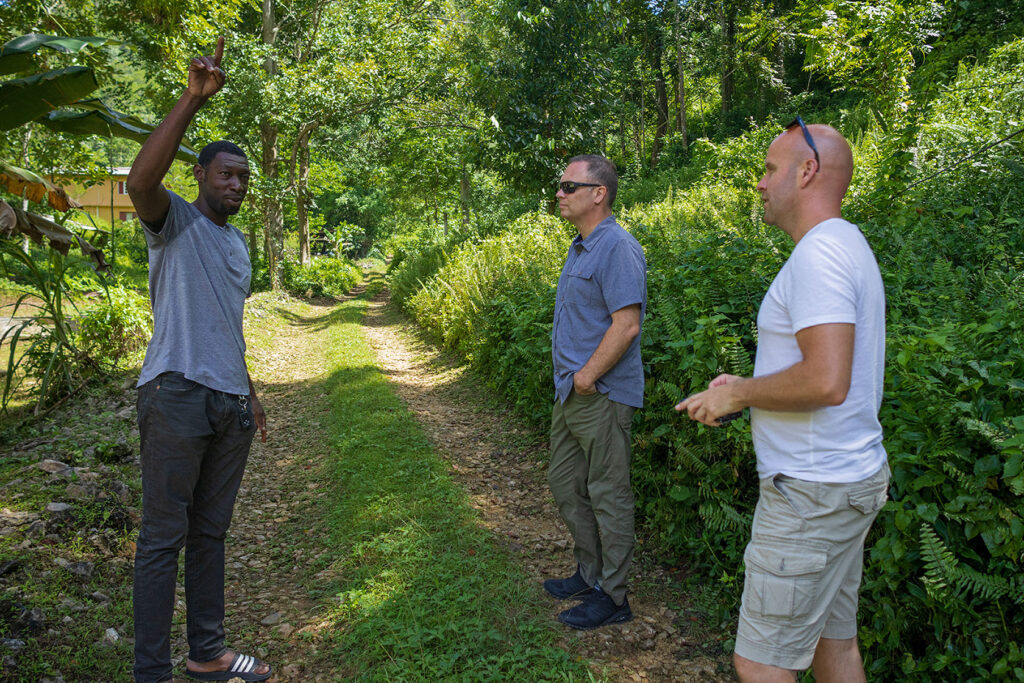I often have the privilege of speaking with missionaries who are currently on the field or are on deputation attempting to get to the field.
Inevitably, the conversation turns to mission boards. In my experience, I’ve had the unique opportunity of seeing some wonderful mission boards who are focused on evangelism, discipleship, church planting, and Christ’s kingdom. I’ve also interacted with mission boards who seem to be more interested in denominational politics, advancing mid-20th-century American culture, and maintaining the status quo.
So here’s the deal. If you’re looking for a mission board, I believe you must find one that has the following values.
1. Theological Compatibility with the Missionary
Clearly the most important element of any ministry relationship is theological compatibility. How can you properly make disciples for Jesus with an institution that believes you are not properly making disciples? It’s incredibly important that you compare your statement of faith with their statement of faith, and then look for discrepancies.
Be careful to not become unreasonable in your expectations of theological compatibility. There are some who only see theological compatibility with those who agree with them on every secondary doctrine, tertiary doctrine, and biblical belief. In what passage do you see the establishment of the church? Does Acts 6 refer to deacons? Who is Apollyon? What do you believe about Jephthah’s vow? Hyper-separatists demand complete conformity on a plethora of non-essential doctrines, but they will settle for pretend compatibility.
Don’t compromise. Don’t give up. Find a mission board that neither demands unreasonable conformity to obscure doctrine nor denies the fundamentals of the Christian faith.
2. Long-Term Care Program for the Missionary
One of my greatest concerns for independent Baptist missionaries is the lack of long-term care. Too many missionary clearing houses, sending churches, and mission boards have allowed servants of God to enter life-long missions into foreign fields without properly preparing them for routine medical care, life threatening illness, or retirement.
I’ve come across too many missionaries in their 60’s who are now financially destitute due to a lack of proper financial investment. I tire of reading of the medical emergencies faced by so many missionaries who lack any type of medical insurance. That which we would see as basic coverage for the American minister becomes superfluous for the missionary sent to a foreign field.
Some may see these things as unnecessary at first, but when tragedy strikes or retirement comes, the missionary is reduced to approaching their few supporting churches, supporting family, and supporting friends with financial requests. The problem: often the financial obligations at this point are far too great to be handled properly.
Instead, the missionary and sending church must insist early on upon finding a board that will structure retirement and medical insurance into their monthly support and annual budget. Certainly, this may delay arrival on the mission field, increase the monthly budget of every missionary, and mean the mission board will need to retain a larger portion of the missionary’s financial support. But the alternative simply isn’t working.
3. Strong Administrative Offices for the Sending Church
Sending a missionary from the United States to a foreign field is no small commitment, and the sending church needs a solid partner. I’m sure there are the rare occasions where a missionary only needs a sending church who will provide all financial oversight, insurance requirements, international visas, monthly support processing, spiritual encouragement, missionary coaching, and legal advice. However, for most local churches in the United States, this is simply too much to ask.
Even for a church like mine, Southern Hills in Las Vegas, that has a brilliant executive pastor who leads both a team of deacons who are accomplished in their own particular fields and a team of staff who are administratively gifted, we simply cannot provide everything a missionary is going to need.
This is one of the reasons we were so thrilled when we found ABWE. When one of our deacons, Dr. Brandon Snook, retired as a Colonel from the Air Force last year and was led to move his family to Togo, West Africa to serve and live as medical missionaries, we knew that we needed help. Who would provide the training necessary? Who would walk us through the process of entering a new country and culture? Who would process all of the financial support and help them prepare for the eventuality of old age? Who would teach them how to prepare their family? Who would teach us how to properly care for them as a sending church? This incredible mission board has proven to be an invaluable resource and partner as we seek to advance the gospel of Christ in Africa and make disciples for Jesus Christ.
This caliber of administration requires money. This is why a good mission board will retain 7-12% of the missionary support in order to provide a level of excellence in organization and administration that the missionary deserves. I know the temptation is to chince out and think of administration as expensive or unnecessary. But this type of thinking is what has led to so many missionaries coming home from the field prematurely, without adequate care, and financially destitute.
4. An Aversion to Hyper-Separatism
I have a very dear friend who was told by his mission board that his family and mission would be dropped if he participated in an Idea Day. If this wasn’t so sad, it would be hilarious.
Not only do certain mission boards demand pretended conformity on minor theological issues and preferential standards, they also demand that you dislike those they dislike. Dropped? (For those who are unfamiliar with the Baptist missionary process, to be dropped by your mission board is a huge deal, typically resulting in a loss of 75-90% of your financial support.)
So, what can we do? Avoid these institutions. If you are going to the foreign field, do whatever it takes to stay away from this kind of micromanagement and denominational control. Imagine what it’ll be like after getting to the field and having to live under the continual pressure of their weak conscience. If you are already a missionary with one of these institutions, do whatever it takes to leave and find a mission board more concerned about international evangelization than they are with denominational politics and cultural preservation.
Don’t use that musical instrument! Don’t wear that in your services! Don’t let your children see that movie! Don’t let your wife wear that to town! Demanding conformity in preferential matters is the lifeblood of some mission boards. Such groups often supersede the authority of the sending church and demand the missionary practice as doctrine the commandments of men.
Some of these institutions will even tell you that they personally don’t have a problem with your ecclesiastical comradery or local ministry choices, but other Christians in the United States do have a problem—so, they will need you to compromise truth in order to maintain support. Be very careful of handing the reigns of your life and ministry over to these controlling hyper-separatists.
I can guarantee that I will have dozens, if not hundreds, of missionaries contact me this week with statements similar to, “I agree! And I so wish I could share this article or comment on this post, but I know my mission board will drop me for doing so.” This is sad—very sad.
5. Can Distinguish Between Contextualization and Syncretism
There is a difference. Syncretism is terrible, awful, and damnable. Contextualization is what every faithful minister of the gospel has done since the day Paul preached on Mars Hill. Syncretism is the amalgamation of the society’s religion into the doctrines of Christianity. The most notorious offender is the Roman Catholic Church. Throughout history they have arrived in remote regions of the world with a “add Jesus and the sacraments to your beliefs” attitude. This has prostituted the gospel of Christ and has led to an innumerable amount of false doctrines perpetuated by false converts.
Contextualization, on the other hand, is to faithfully present the unaltered gospel message in the context of a particular culture. It is the reason Jesus wore sandals while on earth and not wingtips. It’s the reason he spoke in Aramaic and not English. It’s the reason he talked about seeds, and farmers, and fish, and sheep rather than football, and cars, and movies. It’s the reason why so many pastors will wear an American businessman’s suit to preach the Bible this coming Sunday. It’s the same reason why I won’t this coming Sunday. It’s the reason why the music in the bush in Vanuatu sounds like it come from Vanuatu and not from Vienna.
The danger in partnering with a mission board that conflates these two and cannot distinguish between syncretism and contextualization is obvious. You will feel as though you are attempting to transplant American cultural Christianity rather than advance the gospel of Jesus Christ and make disciples for him. You don’t want to fall into this trap.
6. Tight Control on Bureaucratic Waste
Let’s talk numbers. How much of the American church’s missionary money is actually making to the foreign field? For some of the largest mission boards—it’s scandalous. When 50-60 percent of designated missionary dollars are not even leaving the U.S. borders, there is clearly need for reform.
The tendency of large missionary organizations is to allow its bureaucracy to grow unnecessarily. Billions of dollars are spent on layers upon layers of bureaucratic middlemen and stateside organization while billions of people are without Christ around the world.
This is why I’m an advocate for leaner and meaner mission boards who effectively provide oversight, coaching, administrative help, and long-term care, all while staying budget conscience. Every organization needs a hyper-vigilant penny-pincher who is asking questions like, “Do we really need to spend money on this?”
I’m excited about the future of international evangelism and all of those who are being called by Christ into missionary work. I also know that many in Baptist circles will not like this call for reform. Those who have a vested interest in the status quo will see this post as dangerous. But there is nothing more dangerous than allowing our missionaries to continue on without proper support, financial planning, and proper medical care. There is nothing more dangerous than allowing denominational politics and the fears of hyper-separatism to keep us from fulfilling the Great Commission.
As an independent Baptist, I like our model. But it certainly needs reform.
Editor’s Note: This article was first published on ABWE on August 22, 2019.
Want to get your church excited about missions? Download our free SendOne guidebook.




